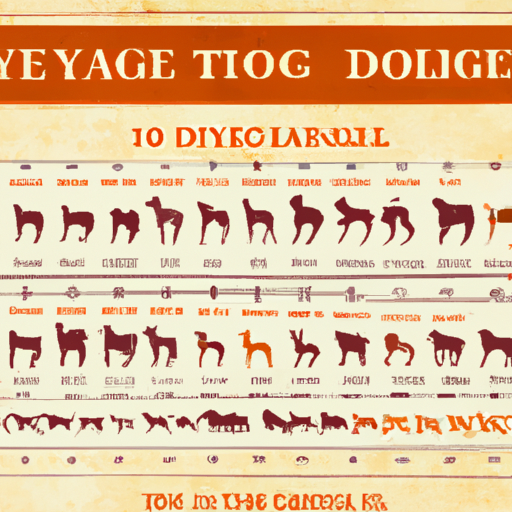As a caregiver, you’re likely interested in not just the physical well-being of your canine companion, but also their longevity. We all wish our dogs could live as long as we do, but the harsh reality is, they don’t. However, understanding the average lifespan of dogs, as well as factors that influence it, can help us provide the best care possible to ensure our furry friends are with us for as long as possible.
Table of Contents
- Factors Influencing a Dog’s Lifespan
- Average Lifespan of Different Dog Breeds
- Improving Your Dog’s Lifespan
- Frequently Asked Questions
Key Takeaways:
– Breed, size, genetics, diet, and lifestyle are major factors that influence a dog’s lifespan.
– Smaller dog breeds generally live longer than larger ones.
– Providing a balanced diet, regular exercise, and regular veterinary care can improve your dog’s lifespan.
Factors Influencing a Dog’s Lifespan
Like humans, several factors influence the lifespan of a dog. These include breed, size, genetics, diet, and lifestyle.
Breed and Size: Generally, smaller dog breeds tend to live longer than larger ones. For instance, a Chihuahua can live up to 17 years, while a Great Dane may only live up to 8 years.
Genetics: A dog’s genetic makeup, including predispositions to certain health conditions, can significantly impact their lifespan.
Diet and Lifestyle: A balanced diet, regular exercise, and a healthy living environment contribute to a dog’s longevity. Obesity can lead to numerous health problems in dogs, shortening their lifespan.
For more information on how these factors influence a dog’s lifespan, you might want to visit American Kennel Club’s article on dog lifespan.
Average Lifespan of Different Dog Breeds
Dog lifespans can vary greatly between different breeds. Here’s a snapshot of the average lifespans for a few popular breeds:
| Breed | Average Lifespan |
|---|---|
| Labrador Retriever | 10-12 years |
| German Shepherd | 9-13 years |
| Beagle | 10-15 years |
| Bulldog | 8-10 years |
| Shih Tzu | 10-16 years |
To find out the average lifespan of other dog breeds, you can refer to this comprehensive list by OneTopDog.
Improving Your Dog’s Lifespan
While we can’t change our dogs’ genetics or breed, there are things we can do as caregivers to help extend their lives.
1. Provide a Balanced Diet: A nutritious, balanced diet is crucial for keeping your dog healthy. Always opt for high-quality dog food that meets your dog’s nutritional needs.
2. Regular Exercise: Regular exercise helps maintain a healthy weight and keeps your dog’s heart and muscles strong. The amount of exercise needed can vary depending on your dog’s breed and age.
3. Regular Veterinary Care: Regular check-ups can help detect health issues early, increasing the chances of successful treatment.
4. Dental Care: Dental disease can lead to serious health problems in dogs. Regular brushing and dental check-ups can help prevent these issues.
5. Mental Stimulation: Mental stimulation, through training or puzzle toys, helps keep your dog mentally sharp and reduces the risk of cognitive decline in older dogs.
For more tips on how to improve your dog’s lifespan, you can visit OneTopDog’s guide on dog health.
Frequently Asked Questions
1. Do mixed breed dogs live longer than purebreds?
Mixed breed dogs often have fewer health issues than purebreds due to greater genetic diversity. This can sometimes contribute to a longer lifespan.
2. Does neutering or spaying affect a dog’s lifespan?
Neutering or spaying can prevent certain health issues, potentially increasing a dog’s lifespan.
3. What is the oldest a dog has lived?
The oldest recorded age for a dog is 29 years and 5 months for an Australian Cattle Dog named Bluey.
4. Can dogs live 20 years?
While it’s rare, some small dog breeds can live into their early 20s.
5. Does a dog’s size affect its lifespan?
Yes, generally speaking, smaller breeds tend to live longer than larger breeds.
In conclusion, while certain factors like breed and genetics are out of our control, as caregivers, we can influence our dog’s diet, lifestyle, and healthcare, thereby extending their lifespan. Remember, it’s not just about the quantity of years, but the quality of life we provide for our dogs. For more insights on dog care, check out OneTopDog’s dog care section.



